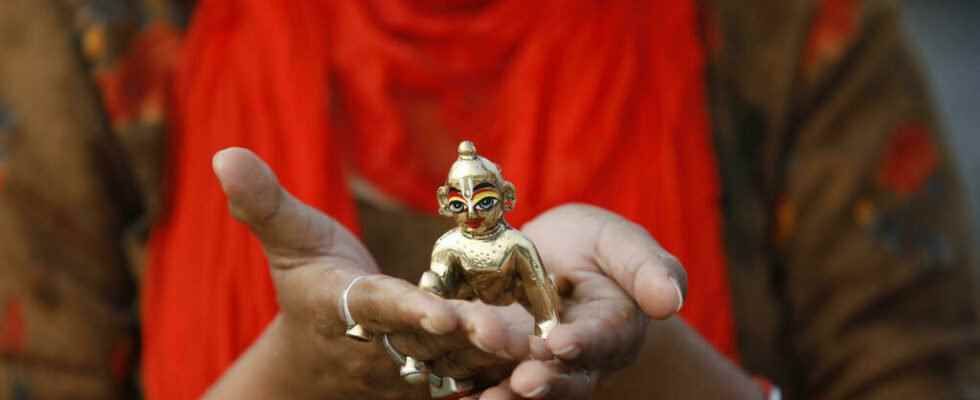In India, a gigantic Hindu festival is taking place these days in the region of Bengal, in the east of the country, called Ganga Sagar Mela. Millions of pilgrims must take part in ritual baths in the estuary of the sacred river Ganges. Rites that take place as the Omicron variant explodes cases of Covid-19 contamination in the country, with more than 260,000 cases detected in 24 hours, an increase of 10% per day. Doctors therefore fear that this event will spread the virus even faster.
From our correspondent in India, Sebastien Farcis
Hundreds of thousands of pilgrims have already arrived from all over the north of the country for their ritual bath in the estuary of the Ganges, the holiest river in Hinduism. Devotees go to an island for this and thousands then perform their ablutions at the same time, which involves immersing one’s body and passing water over one’s face.
For Doctor Souradipto Chandra, general practitioner in New Delhi, these collective rituals are very risky in the midst of the wave of Covid-19: “ When you take a bath, you are releasing all the fluids in your body. Your mucous membranes, your saliva, it all mixes with water. However, it is through these fluids that most people become infected. This event will therefore turn into a super-propagator of Covid-19 – yet we are in the middle of the third wave, not even at the peak. So they should have postponed it. »
To access the island, pilgrims must prove that they are vaccinated and that they have recently tested negative for Covid-19. Similar measures were put in place during the Khumb Mela festival last year – but that did not prevent thousands of pilgrims from being infected. And several religious had even died of Covid during the event.
► See also: Covid-19 in India: massive religious gatherings despite the record of contaminations
